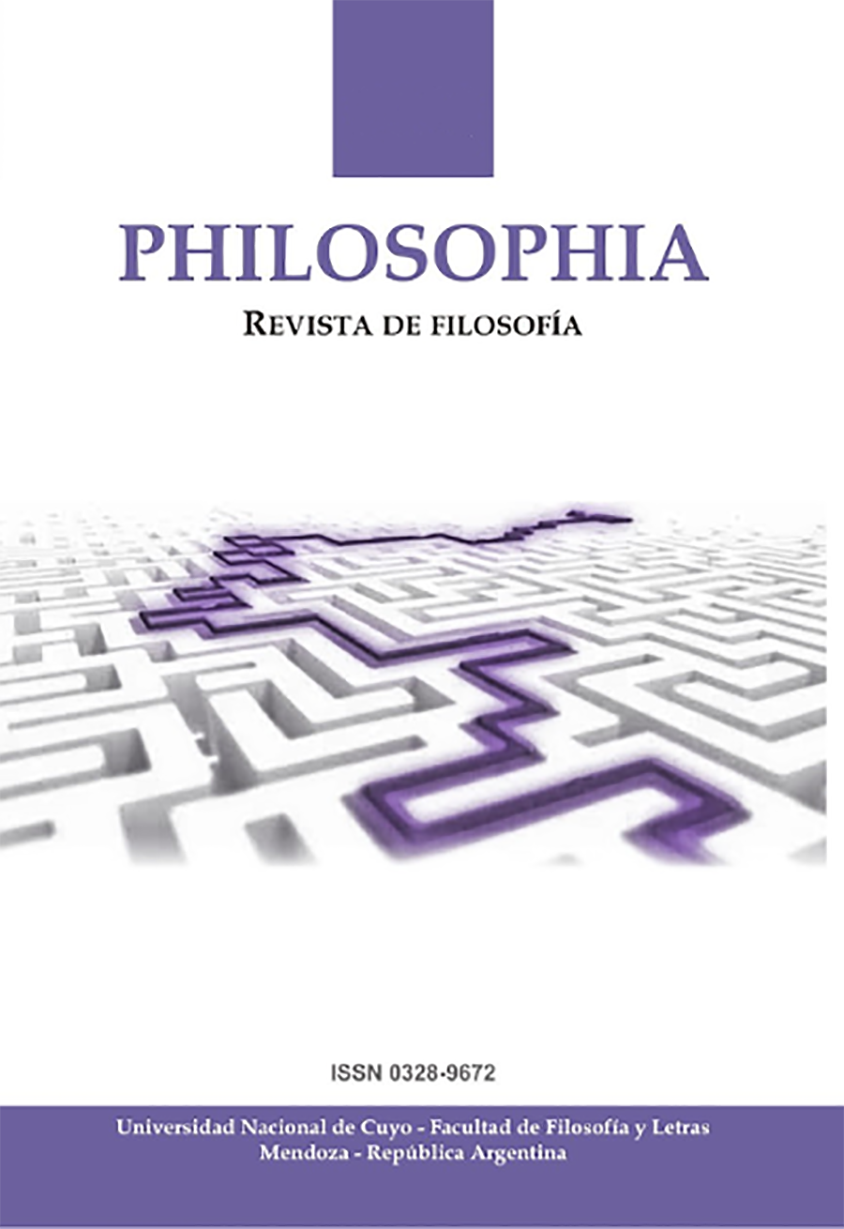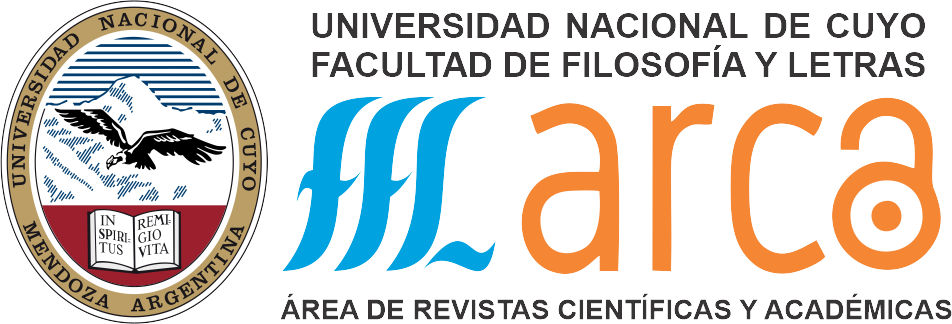Razones insuficientes: la pérdida del agente en la interpretación racional y la teoría causal de la acción
DOI:
https://doi.org/10.48162/rev.50.017Keywords:
rational or normativist action explanation, causal theory of action, disappearing agent, agent causalityAbstract
The paper exposes two explanatory proposals to the problem of action in analytic philosophy: the rational or normativist explanation and the Davidsonian causal theory of action. The problem of the disappearing agent in both proposals will be highlighted, showing how ultimately psychological and physiological events take place within a person, but the person serves only as a setting for these events. We will finish with the exposition of a possible way of solution, substantial agent causality, which makes action intelligible and allows the integration of reasons and physical causality within the agent.
References
Alvira, Tomás, Clavell, Luis y Melendo, Tomás. Metafísica. 8va ed. Pamplona: Eunsa, 2001.
Arana, Juan. La conciencia inexplicada. Madrid: Biblioteca Nueva, 2015.
Aristóteles, The Complete Works of Aristotle. Vol. II, ed. J. Barnes, West Sussex: Princeton University Press, 1984.
Brock, Stephen L. Action and conduct: Thomas Aquinas and the theory of action. Washington: CUA Press, 2021
Caorsi, Carlos E. “Donald Davidson (1917-2003)”. Signos Filosóficos, 6:11 (2004): 189-215.
Carroll, Sean M. El Gran Cuadro. Los orígenes de la vida, su sentido y el universo entero. Barcelona: Pasado y Presente, 2017.
Córdoba, Mariana. Realismo, referencia y relaciones interteóricas. Tesis Doctoral defendida en la Universidad Nacional de Buenos Aires. Pro-manuscrito, 2011.
Córdoba, Mariana. Realismo, referencia y relaciones interteóricas. Cuadernos De filosofía, 58, (2012): 89-90.
Clarke, Randolph, Capes, Justin y Swenson Philip. “Incompatibilist (Nondeterministic) Theories of Free Will”. En The Stanford Encyclopedia of Philosophy, 2021, ed. E. N. Zalta, URL = https://plato. stanford.edu/archives/fall2021/entries/incompatibilism-theories/.
Davies, Wayne A. “The Causal Theory of Action”. En A Companion to the Philosophy of Action, eds. T. O’Connor y C. Sandis, 32-39. Oxford: Wiley-Blackwell, 2010.
Davidson, Donald. “Thinking Causes”. En Mental Causation, eds. J. Heil y A. Mele, 3-18. Oxford: Clarendon Press. 1993.
Davidson, Donald. Ensayos sobre acciones y sucesos. Barcelona: Crítica, 1995.
Everson, Stephen. “Motivating reasons”. En A Companion to the Philosophy of Action, eds. T. O’Connor y C. Sandis, 145-152. Oxford: Wiley-Blackwell, 2010.
Feser, Edward. Philosophy of Mind. Oxford: Oneworld, 2006.
Feser, Edward. Scholastic Metaphysics. A Contemporary Introduction. Heusenstamm: Editions Scholasticae, 2014.
Fuster , Joaquín M. Neurociencia. Los cimientos cerebrales de nuestra libertad. Ciudad de México: Paidós, 2019.
Flores-Castro, Gonzalo. “En defensa de la persona y su agencia en el campo del neuromanagement. Una propuesta desde la filosofía de la acción de E. J. Lowe”. Illustro, 12:1 (2021): 27-41.
Frankl, Viktor. La idea psicológica del hombre. Madrid: Rialp, 1965.
Frankfurt, Harry G. “The Problem of Action”. American Philosophical Quarterly. 15:2 (1978): 157-162.
Jolivet, Regis. Diccionario de Filosofía. Buenos Aires: Club de Lectores, 1984.
Lowe, Edward J. “Non-Cartesian Substance Dualism and the Problem of Mental Causation”. Erkenntnis (1975-), 65:1 (2006): 5-23.
Lowe, Edward J. Personal Agency. The Metaphysics of Mind and Action. New York: Oxford University Press, 2008.
McLaughlin, Brian P. “On Davidson’s Response to the Charge of Epiphenomenalism”. En Mental Causation, eds. J. Heil y A. Mele, 27-40, Oxford: Clarendon Press, 1993.
Melden, Abraham I. Free Action. Londres: Routledge, 1961.
Moya, Carlos J. Filosofía de la mente. 2da ed. Valencia: Universitat de València, 2006.
Nagel, Thomas. Una visión de ningún lugar. México D.F.: Fondo de Cultura Económica, 1998.
Oderberg, David. Real Essentialism. New York: Routledge, 2007.
O’Connor, Timothy. Persons and Causes. The Metaphysics of the Free Will. New York: Oxford University Press, 2010.
Osgniach, Augustine J. The Analysis of Objects or the Four Principal Categories. An Historical-Critical Analysis in the light of Scholastic
Philosophy. Mörlenbach: Editiones Scholasticae, 2014.
Paul, Sarah K. Philosophy of action. New York: Routledge, 2021.
Pereboom, Derk. “The disappearing agent objection to event-causal libertarianism”. Philosophical Studies, 169:1, (2014): 59-69.
Robinson, William. "Epiphenomenalism". En The Stanford Encyclopedia of Philosophy, ed. E. N. Zalta, 2019 URL = https://plato.stanford.edu/ar chives/sum2019/entries/epiphenomenalism/.
Russell, Bertrand. My Philosophical Development. London: Unwin Paperbacks, 1985.
Sanguineti, Juan J. Filosofía de la mente. Madrid: Palabra, 2007.
Tomás de Aquino. Thomas Aquinas’s Quodlibetal Questions. Turner Nevitt y Brian Davies (trad.). New York: Oxford University Press, 2020.
Velleman, J. David. “What happens when someone acts?”. Mind, 101:403, (1992): 461-481.
Wuellner, Bernard J. Summary of Scholastic Principles. Chicago: Loyola University Press, 1956.
Downloads
Published
How to Cite
Issue
Section
License
Copyright (c) 2023 Gonzalo Flores Castro Lingán

This work is licensed under a Creative Commons Attribution-NonCommercial-ShareAlike 3.0 Unported License.
Se permite la reproducción de los artículos siempre y cuando se cite la fuente. This work is protected under license Attribution-NonCommercial-ShareAlike 3.0 Unported (CC BY-NC-SA 3.0) You are free to: Share "” copy and redistribute the material in any medium or format; Adapt "” remix, transform, and build upon the material
The licensor cannot revoke these freedoms as long as you follow the license terms.
Under the following terms:
Attribution "” You must give appropriate credit, provide a link to the license, and indicate if changes were made. You may do so in any reasonable manner, but not in any way that suggests the licensor endorses you or your use.
NonCommercial "” You may not use the material for commercial purposes.
ShareAlike "” If you remix, transform, or build upon the material, you must distribute your contributions under the same license as the original.
No additional restrictions "” You may not apply legal terms or technological measures that legally restrict others from doing anything the license permits.
For more information, please visit: https://creativecommons.org/licenses/by-nc-sa/3.0/deed.en






